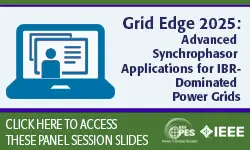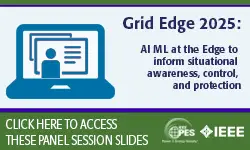Federated Learning for Short-Term Residential Load Forecasting
Christopher Briggs, Zhong Fan, and Peter Andras
-
Members: FreePES
IEEE Members: Free
Non-members: FreePages/Slides: 11
12 Sep 2022
Load forecasting is an essential task performed within the energy industry to help balance supply with demand and maintain a stable load on the electricity grid. As supply transitions towards less reliable renewable energy generation, smart meters will prove a vital component to facilitate these forecasting tasks. However, smart meter adoption is low among privacy-conscious consumers that fear intrusion upon their fine-grained consumption data. In this work we propose and explore a federated learning (FL) based approach for training forecasting models in a distributed, collaborative manner whilst retaining the privacy of the underlying data. We compare two approaches: FL, and a clustered variant, FL+HC against a non-private, centralised learning approach and a fully private, localised learning approach. Within these approaches, we measure model performance using RMSE and computational efficiency. In addition, we suggest the FL strategies are followed by a personalisation step and show that model performance can be improved by doing so. We show that FL+HC followed by personalisation can achieve a ~5% improvement in model performance with a ~10x reduction in computation compared to localised learning. Finally we provide advice on private aggregation of predictions for building a private end-to-end load forecasting application.


